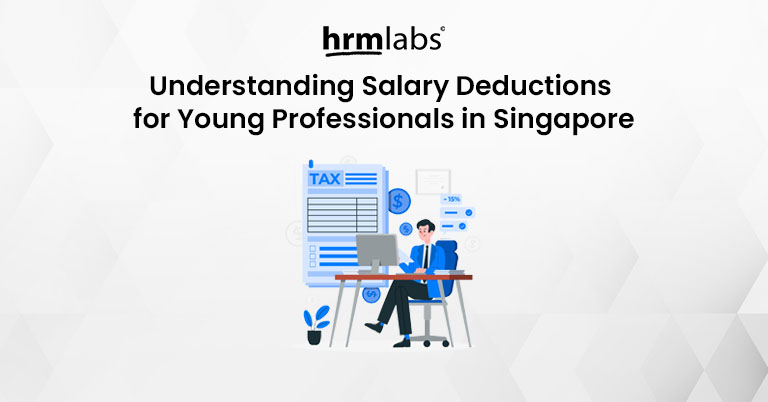Just landed your first real job in Singapore? Feeling excited about that first paycheck? Hold on a sec – before you splurge on the latest iPhone or that epic staycation, let’s crack the code on those mysterious salary deductions chilling on your payslip.
Understanding salary deductions in Singapore is crucial for managing your finances effectively. It empowers you to track your spending, plan for the future, and avoid any unpleasant surprises on payday.
Here’s the lowdown on salary deductions in Singapore, simplified for you.
Why Do Salary Deductions Exist?
Salary deductions in Singapore are regulated to ensure fairness and transparency. These deductions can include contributions to the Central Provident Fund (CPF), income tax, and other authorized or voluntary deductions.
What Gets Deducted from Your Salary?
By law, your employer can only deduct specific items from your salary. These are outlined in the Employment Act and must be reasonable and for your benefit or the company.
Here’s a breakdown of the most common deductions you’ll likely see on your payslip:
- Central Provident Fund (CPF): This is a mandatory savings scheme that helps Singaporeans build their retirement nest egg, own a home, and cover healthcare expenses. Both you and your employer contribute a percentage of your salary to your CPF account. You can find a handy CPF contribution calculator on the HRMLabs CPF Calculator.
- Income Tax: Singapore operates on a progressive tax system. This means the more you earn, the higher percentage of your salary you pay in taxes. The good news? Gen Z-ers with lower salaries might not have to pay any income tax at all! You can check the Inland Revenue Authority of Singapore (IRAS) website for the latest tax rates.
- MediSave: This is a sub-account within your CPF specifically for healthcare expenses. You can use your MediSave funds to pay for hospitalization bills, outpatient treatments, and even your parents’ medical needs (with their consent).
- Additional Voluntary Deductions: Feeling generous? You might have options for additional deductions like charitable donations or contributions to your company’s healthcare plan. These are completely voluntary, so the decision rests with you.
Legal Guidelines and Employee Rights
Singapore’s Employment Act protects employees by regulating salary deductions. Employers must adhere to these rules to ensure fairness and transparency.
Consent for Deductions
Employers must obtain written consent from employees for any deductions not mandated by law. This ensures employees are aware of and agree to the deductions from their salaries.
Maximum Deduction Limits
The total amount of authorized deductions, excluding CPF contributions, cannot exceed 25% of an employee’s salary in any one salary period. This protects employees from excessive deductions that could impact their financial well-being.
Payslip Requirements
Employers are required to issue itemized payslips to employees, detailing all salary components and deductions. This promotes transparency and helps employees understand their earnings and deductions.
Transparency is Key: Don’t Be Shy to Ask Questions!
Still confused about a deduction on your payslip? Don’t be afraid to ask your HR department or consult the MOM website for clarification. Your payslip should be a clear and concise breakdown of your salary and deductions. Here’s a quick guide to what you should expect to see:
- Gross Salary: This is your total salary before any deductions.
- Deductions: This section will list each deduction made, along with the amount deducted. Be sure to check this carefully to ensure everything is accurate.
- Net Pay: This is your take-home pay – the amount you receive after all deductions have been made.
Remember, your salary is your hard-earned money, and you have the right to understand where it’s going.
Conclusion
For Gen Z professionals in Singapore, understanding salary deductions is crucial for effective financial planning and maximizing your earnings. By comprehensively understanding CPF contributions, income tax, and other deductions, you can take control of your finances and plan for a secure future. Stay informed, plan strategically, and make the most of the opportunities available to you.
If you are managing payroll, you know how confusing it can be to calculate salaries, deductions, and contributions accurately. Simplify your payroll processes with HRMLabs, offering two convenient options: the Payroll System and Payroll Outsource services. Whether you prefer a self-managed system or a fully outsourced solution, HRMLabs provides the tools and support you need to ensure accurate and efficient payroll management.



